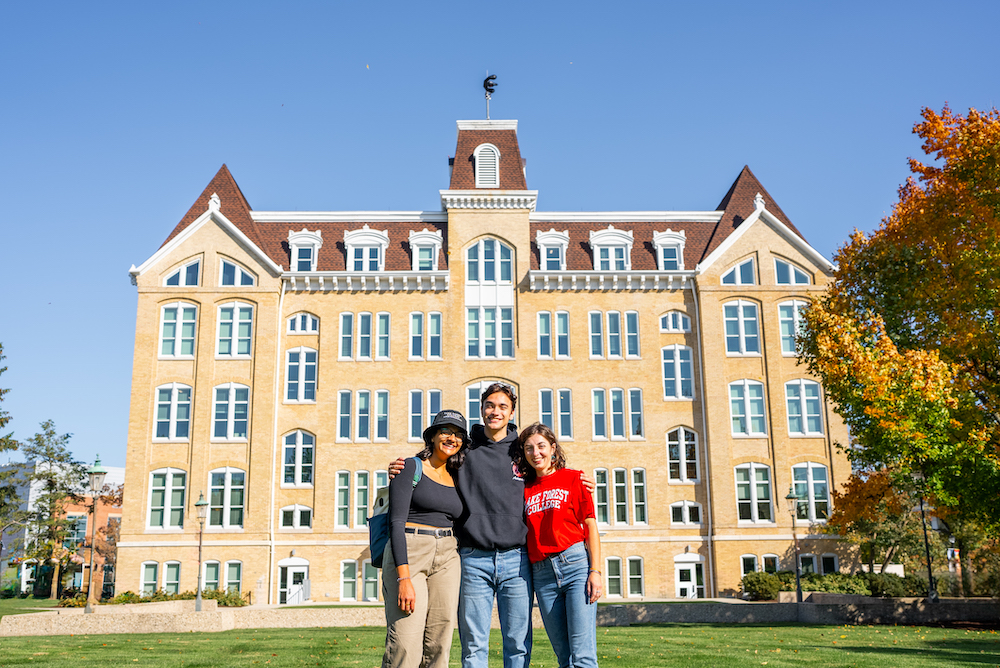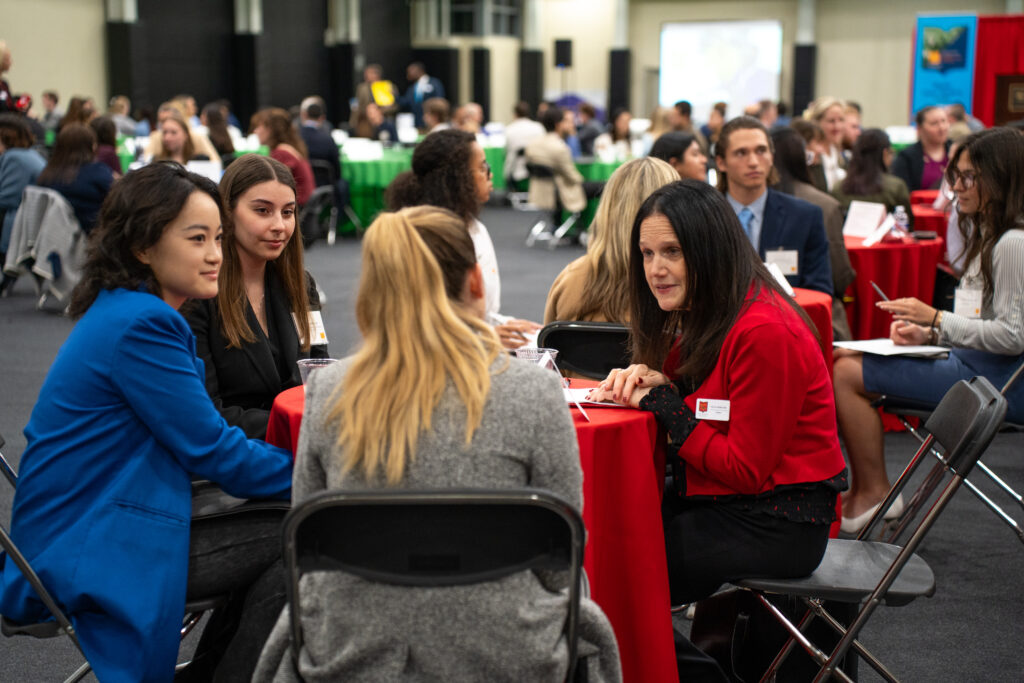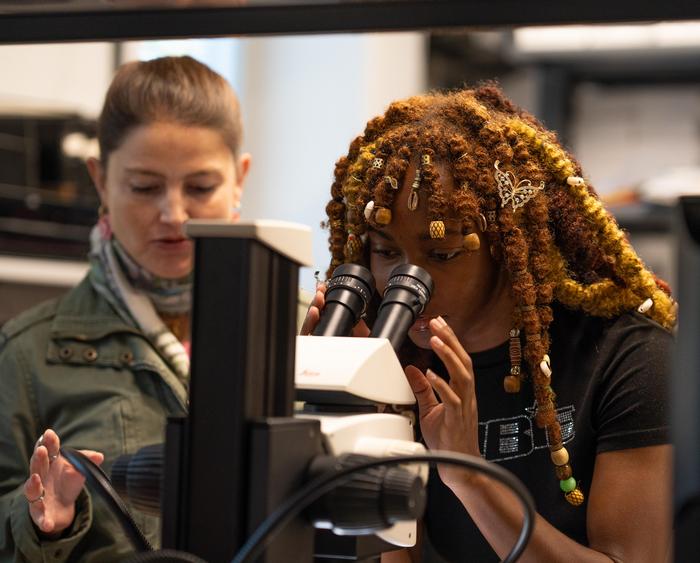Lake Forest College was named the Best Liberal Arts College in the Midwest by the Wall Street Journal (WSJ) in December 2023 and, continuing on this pathway of recognition, not surprisingly, was awarded a $1.2 million grant from the Mellon Foundation for a multi-year initiative that explores artificial intelligence (AI) through a humanities perspective just one month later.

As part of its ongoing efforts to best prepare students for careers of the future, the College applied for and received the Mellon grant to support HUMAN: Humanities Understanding of the Machine-Assisted Nexus, a project belonging to Lake Forest College’s Krebs Center for the Humanities.
There are a lot of exciting things happening at the 167-year-old college located at Sheridan Road and College Avenue in Lake Forest.
The most recent rankings in the WSJ’s “2024 Best Colleges in the US” report was based on three main factors: Student outcomes, including graduation rates, graduates’ salaries, and how those salaries offset the cost of attaining an undergraduate degree at the College; the learning environment, including how well graduates feel they were prepared for a career; and diversity of the students and faculty.
The HUMAN project will equip Lake Forest College students with the skills to ethically integrate AI into their professional lives and will emphasize questions of justice and equity in AI. Professor of English and Executive Director of the Krebs Center for the Humanities. Davis Schneiderman is leading the project, which will serve as a major initiative of the new center.
Simply put, the HUMAN project will explore what it means to be human in the age of AI. An interdisciplinary group of humanities faculty members will work in partnership with Chicago-based organizations to develop new courses, digital humanities research projects, seminars, publications, artist residencies, and other means for students to gain a broad understanding of the role that the humanities should play in public policy, cultural preservation, and community education in an AI-inflected world. Learn more about the project in this recent CBS News Chicago profile.

Lake Forest College also will use HUMAN to address the urgent need for an informed understanding of the interplay between the humanities and the fast-evolving realm of artificial intelligence to ensure ethical developments, promote equitable technological advancement, and nurture meaningful human-AI collaboration. The project will also work closely with three important community partners: Chicago History Museum, Ragdale, and Sweet Water Foundation.
“Artificial Intelligence is everywhere, and we know that tomorrow’s leaders must understand its promise and its limits. We will explore AI within the broad humanistic tradition represented by the Krebs Center,” said Schneiderman, adding that “we need to look at not only what AI can ‘do’ but what can be done to lessen bias in its deployment.”
HUMAN’s activities will support many aspects of the College’s humanities efforts, with direct connections to the entire curriculum, from a new First-Year Studies course called Digital Dawn: Humanity, Cyberspace, and the Rise of Artificial Intelligence, to a significant AI initiative using the Krebs Center’s art collection, to a series of innovative faculty-led projects.
“We have many other engagement points with the evolving role of artificial intelligence, machine learning, and other associated technologies,” said Lake Forest College President Jill M. Baren, MD. “We have computer scientists partnering with our Applied Data Center to work on questions of computer vision. We have faculty development training around the use of ChatGPT in the classroom, and we are hosting a variety of experts on the topic on campus.”

As an example, last fall the College hosted internationally renowned techno-sociologist Zeynep Tufecki, who talked at length about the power of AI as well as the challenges it brings. Looking ahead, on March 26 the College will host “Responsible AI in Healthcare: Forging a Path to a More Equitable Future” presented by Dr. Heather Mattie from Harvard University.
“A liberal arts education equips the future workers of tomorrow with necessary critical thinking skills that allow them to break down highly complex, technical problems into understandable, digestible, and actionable tasks across multiple sectors of the economy and types of employment,” Baren said. “Our job is to prepare our students to think across disciplines and solve problems, especially with a humanistic lens.”
“As an alumnus of Lake Forest College, I owe much of my early professional success and personal growth to the school,” said Steve Madden, CEO of Libertyville Bank and Trust and Chair of Lake County Partners’ Board of Governors. “Lake County is known for its top-ranking schools and extraordinary talent pipeline. We are fortunate to have Lake Forest College leading the charge on high-quality education and providing the mentorship that students need to flourish.”